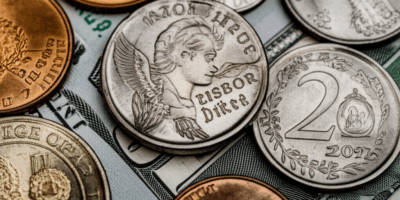How the Coin Sniffer Finds Hidden Treasures
The term “coin sniffer” has gotten complicated with all the crypto tools and blockchain scanners borrowing the name. As someone who uses the term in its original numismatic sense — tools and techniques for sniffing out valuable coins in ordinary places — I learned everything there is to know about both the digital and traditional meanings. Today, I will share it all with you.

The Crypto Meaning: Blockchain Monitoring Tools
In the cryptocurrency world, a “coin sniffer” is software or hardware that monitors blockchain networks to detect and analyze transactions. These tools scan for anomalies, track the flow of digital coins, and help identify potentially fraudulent activity. Financial institutions, exchanges, and individual investors all use them.
I’ve dabbled in crypto monitoring tools, though my main interest is physical coins. The blockchain versions work by capturing transaction data as it’s broadcast to the network, flagging anything that looks suspicious based on pattern recognition. More advanced versions use machine learning to predict fraudulent behavior before it’s completed.
Types of Digital Coin Sniffers
- Hardware sniffers: Physical devices plugged into a network that intercept and analyze cryptocurrency traffic. These are used primarily by institutions and cybersecurity firms.
- Software sniffers: Applications you install on a computer to monitor blockchain activity. More flexible, easier to update, and accessible to individual users.
What They’re Good For
- Security: Detecting fraud and preventing theft of digital assets.
- Transparency: Verifying that transactions are legitimate and properly recorded.
- Compliance: Helping businesses meet regulatory requirements around cryptocurrency reporting.
The Traditional Meaning: Finding Valuable Physical Coins
Probably should have led with this section, honestly. In the numismatic world, “coin sniffing” is informal slang for the skill of spotting valuable coins in everyday circulation, bank rolls, junk boxes, and other places where they hide in plain sight. This is the version I care about most.
I’ve pulled silver dimes out of bank rolls, found a 1909-S VDB Lincoln cent in a pile of unsorted wheat pennies at a flea market, and spotted a key-date buffalo nickel in a dealer’s bargain bin. These aren’t common events, but they happen often enough to keep you looking.
Where to “Sniff” for Coins
- Bank rolls: Order boxes of pennies, nickels, dimes, or quarters from your bank and sort through them. Pre-1965 silver still turns up in dime and quarter rolls occasionally.
- Estate sales and garage sales: Inherited coins often get sold cheaply by people who don’t know what they have.
- Dealer junk boxes: Many coin shops have bins of unsorted or low-value coins. If you know what to look for, you can find underpriced pieces.
- Foreign coin mixes: Bulk lots of world coins sometimes contain genuinely scarce pieces buried among common ones.
Challenges With Both Approaches
Digital coin sniffers face privacy concerns, scalability issues as transaction volumes grow, and the fundamental challenge of keeping up with increasingly sophisticated fraud techniques. The blockchain is complex, and no tool catches everything.
Traditional coin sniffing requires knowledge, patience, and realistic expectations. You’ll sort through thousands of common coins for every valuable find. But that ratio is part of what makes the occasional discovery so satisfying — it wouldn’t feel like a treasure hunt if treasures were everywhere.
The Future of Coin Sniffing
On the digital side, machine learning and AI will continue to improve detection accuracy. On the physical side, the pool of valuable coins in circulation slowly shrinks as collectors pull them out, but new finds still surface regularly. The intersection of these worlds is interesting too — some numismatic apps now use image recognition to help you identify and value coins from your phone camera.
That’s what makes coin sniffing endearing to us collectors — whether you’re scanning a blockchain or sifting through a jar of old change, you’re looking for something valuable that others have overlooked. Both versions reward knowledge and persistence.
Recommended Collecting Supplies
Coin Collection Book Holder Album – $9.99
312 pockets for coins of all sizes.
20x Magnifier Jewelry Loupe – $13.99
Essential tool for examining coins and stamps.
As an Amazon Associate, we earn from qualifying purchases.



